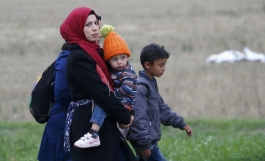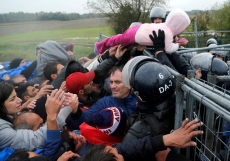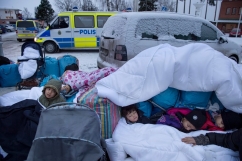Following Sweden's footsteps, the Finish government is set to expel 20,000 refugees who arrived in the country last year and whose applications have been turned down.
The two Nordic countries made their moves as Europe continues to struggle in efforts to resolve tensions in handling the influx of refugees, Fox News reported.
The number of refugees to be deported is among the 32,000 migrants that Finland received in 2015, whose applications have been evaluated individually, according to Paivi Nerg, Finnish Interior Ministry's administrative director.
"In principle we speak of about two-thirds, meaning approximately 65 percent of the 32,000 will get a negative decision (for asylum application),'' said Nerg, adding that in the previous years there were around 60 percent of applicants who received a negative decision.
Nerg said the agency has tightened its criteria for asylum seekers from Iraq, Afghanistan and Somalia this year in the wake of terror threats.
At least two charter flights have been planned within the following months for the refugees, according to the official.
The announcement came after Sweden said it would send 80,000 asylum seekers back to their home countries on chartered flights.
The two Nordic countries are both struggling to cope with an unprecedented influx of refugees and migrants fleeing war and misery in the Middle East and elsewhere.
Finland is also in diplomatic negotiations with neighbouring Russia to stop the entry of migrants, who are funnelling down from the now barred Norway border, from entering Finland via the Arctic region, according to Fox News.
"The ministry is planning to set up separate transit centres for those to be deported from those wanting to leave the country on a voluntary basis,'' she said.
The deportations will take place gradually as immigration authorities process applications, said Nerg.
Analysts say the ever-growing number of asylum-seekers, combined with high-profile crimes blamed on migrants in various countries across Europe, has led to the introduction of more hard-line policies towards migrants.

















